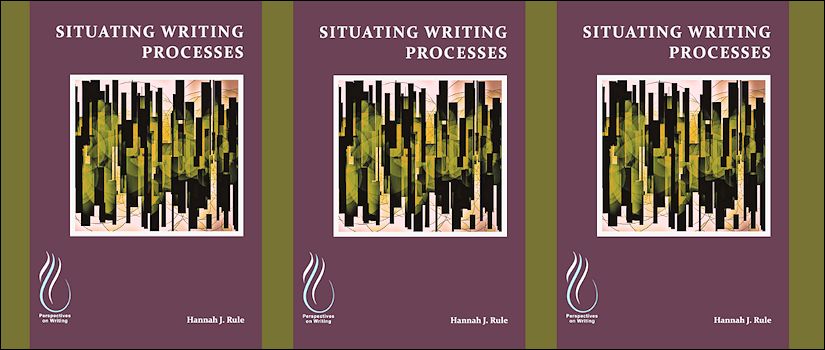Where we write matters, this new book argues.
While composition programs have long insisted that writing be taught as a process (not product), UofSC English professor Hannah Rule asks that we think more carefully about what we mean by process. In Situating Writing Processes: Physicality, Improvisation, and the Teaching of Writing, Rule argues that situating writing means understanding the physical locations within which writing is done, the social and affective contexts of writing, and even the materiality of the tools and objects we use to write. How do privacy, or economic precarity, or the physical place in which one writes shape how and what we write? How is writing inflected by the domestic life and social roles of the writer?
“Process,” Rule commented recently, “is the very fabric of how we are taught and how we teach writing. But I've always thought the ways we (both those in my field of composition studies and everyday writers) talk about and picture process is too antiseptic and orderly, too in-the-mind, too ephemeral. No! Writing processes unfold down here, in infinite right-heres, in and through bodies, in and across specific material contexts and constraints.”
As Rule summarizes in the book’s introduction, her project “is about seeing located writing processes unfold (and about the partialities of that looking). It is about the disciplinary histories and theoretical stories we have told about writing processes and how those stories’ assumptions leave their imprints on our classrooms today. It is about enacting processes in our teaching less as serial drafts alone and more as embodied doing in specific fluctuating spaces. It is about how we—writers and teachers of writing—picture writing processes and about the value of differentiating, emplacing, and particularizing those images. This book aims to discover, theorize, and teach with writing processes as physically situated, and thus, improvisational” (6).
Writing is not, Rule argues, a set of skills and practices, but a process that takes place in physical contexts with constraints that are both material and social. “My instinct,” she noted recently, “borne out in my and others' studies of processes over the years, is that this situated view is more accurate to the experience of writing.” This matters, she explained, “ because it lets us (literally) see how processes are susceptible to, never separable from, others, environments, conventions and constraints, systems, tools, accidents, and so on. The writing process is never the writer's own alone.”
Paying attention to situatedness and contexts forces us to understand the deeply improvisational nature of writing practices, and it may also help us to think through more carefully some of the inequities of education.
Situating Writing Processes is available in print from the University of Colorado Press with CSU Open Press. An open access version is also available online, published by the WAC Clearinghouse in the Perspectives on Writing Series.
And you can listen to Rule read an excerpt of the book.
